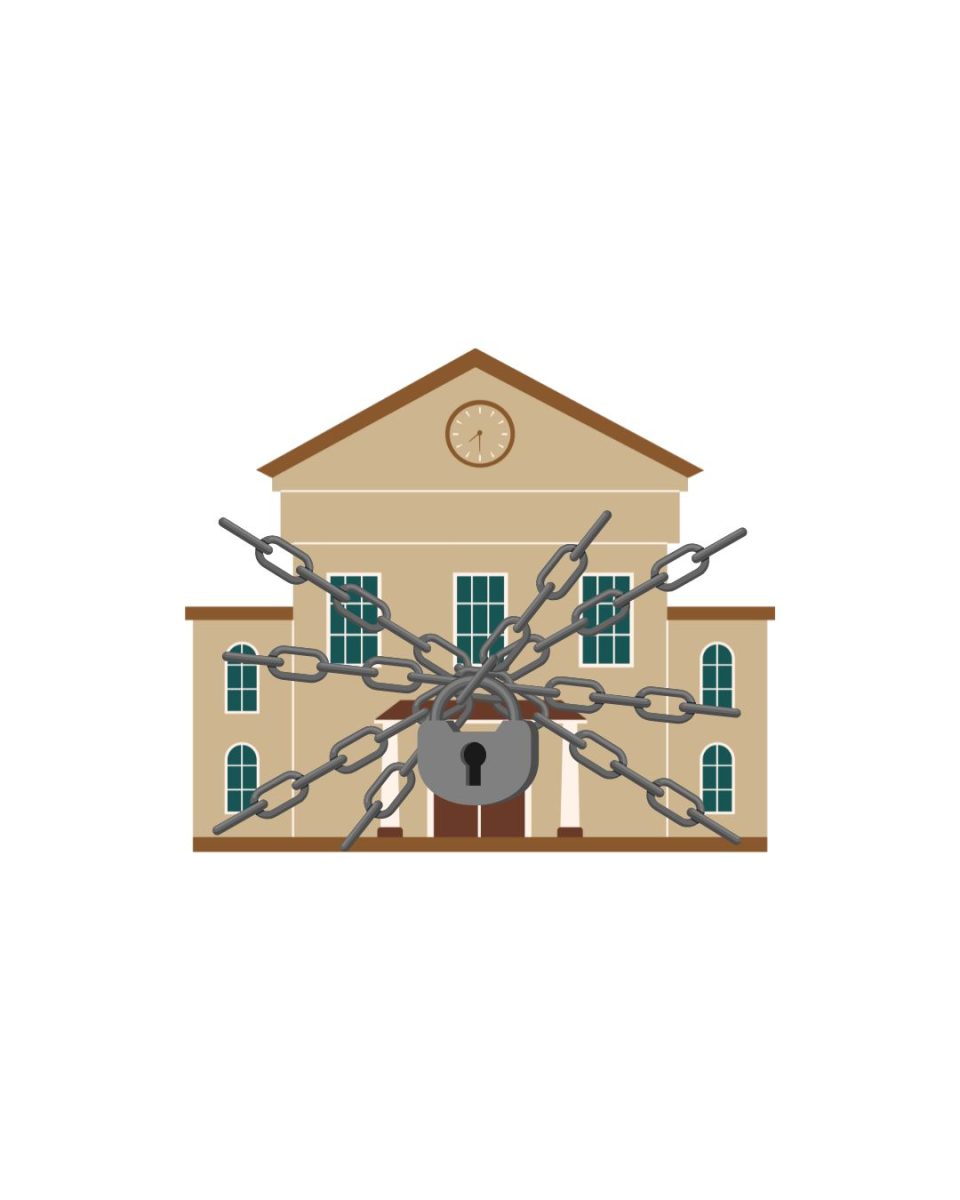When you’re a woman in a field dominated by men, there are expectations all around. Sure, it may be 2019, but there are still sexist men who expect you to fail. There are a lot of people who think of themselves as very nonsexist, and those people expect you to succeed.
Geology is a field where only 30% of professionals are women. Some may assume that terrible men berate me about geology being a “man’s job.” They, knowing me as “Ms. Loud Feminist,” might even assume that if or when I face sexist attitudes, I’ll do it by proving myself; that I’ll swing my rock hammer twice as hard as that sexist man ever could; that I’ll do better math and better science than them, and prove them wrong.
They believe that by simply being better, I’ll pave the way for other women like me to succeed. They think that this is how sexism presents itself in STEM, and they imagine a satisfying conclusion wherein I change attitudes and minds, and sexism is dead from that point forward: the very archetype of the Empowered Woman in Science.
But it’s 2019. Sexism in STEM doesn’t look like it did in the 1950s — and it isn’t so neatly addressed.
When I enrolled at Rowan University, I spent my first two years without a female professor in any science or math class except for physics.
The physics professor was not full-time faculty, and I couldn’t find her name on any website. She wasn’t a scientist; she was just a teacher. For those first two years, I heard about the research of my male geology professors and listened to them talk about being published and traveling across the world. I was almost 21 before I had a geology course taught by a woman. It wasn’t that I doubted that women could be research geoscientists. It was just that I had never seen it.
When the department ordered chest waders, a waterproof boot extending from the foot to the chest for field excursions, they only ordered those which fit the average man’s feet. I’m not even sure if they’re manufactured to fit the smaller foot of a woman. There are three sizes of waders in the department’s closet, and not one of them is suitable for a women’s shoe size 8. When I’ve tripped over the too-big boots and nearly twisted my ankle, I felt ashamed that I’m so clumsy.
When a male classmate makes comments that are indicative of sexist attitudes, I try to combat them with discussion of my feelings and my lived experiences. But then, I’m told I’m being aggressive, from another man who never sees the aggressions that were pointed toward me in the first place. He just doesn’t see how the comment was a big deal. He tells me that I’m overreacting, and the implicit message is: what a reactionary b—ch.
When I do take the “high road approach” by being better, like a real empowered woman would do, no one notices. There is no moment of satisfaction. I am not nurtured more or loved better because I am competent. I do not magically gain acceptance from men. It does not actually matter that I am better than them at math, better than them at programming. It’s been a myth all along, and I’m an idiot for thinking that being “one of the good women” would make me a real feminist or a real geologist.
But I certainly feel like an idiot when a man tells me that I have to tolerate hostile behaviors because the other man who is bothering me “has a lot of potential.” No man ever considers that I have a lot of potential, or that my education also needs to be protected. It doesn’t matter how much better I am at my classwork, or how much more time I invest in the subject. The feelings of men will always take priority, it seems.
Oh, but that’s not sexism. Of course not. No one is sexist here. Why am I even bringing it up and making it all about sexism again?
My professors and peers have never been outwardly sexist towards me. They have been kind and never made me feel as if I am less capable for being a woman.
However, there are still many systemic sexist assumptions about what a geologist looks like, and they never address those issues. They leave that labor to me, the only woman in the room.
They don’t want to get political, they say, whenever I try to talk about sexism in STEM. What they don’t understand is that it’s not politics; it’s my education, it’s my life, it’s real things that I experience every day. And the men in the room who refuse to talk about it, by doing so, also refuse to invest any effort into ensuring that I receive an education that’s equitable or fair.
It’s funny that so many men who claim to be above sexism spend most of any given conversation playing defense for the men who are sexist.
Nobody ever told me about the labor that comes with having to prove yourself, your skills, and your worthiness for kindness over and over again. Nobody ever told me that the most emotionally draining part of sexism isn’t sexism, but navigating sexism while being told over and over again that none of it is sexism — that it’s my fault for even caring about it, and that it’s my burden alone.
Any man who isn’t actively trying to dismantle sexism in STEM doesn’t actually care about whether or not I have to experience sexism. And yes, that’s sexist, too. Silence doesn’t exonerate you.
Some people think of women in STEM as metaphors for inclusion and the dismantling of broken systems. But I’m not a metaphor. I’m not here to prove a point, whether about women or about science.
I’m not an action movie heroine who punches villains and destroys evil and comes out on top for my troubles. I’m not reduced to an idea just because I also happen to identify as female.
I’m a person. I’m a human being.
It should not matter whether or not I am exceptional. I should be able to be the least competent student in any given classroom, and it should change nothing. I should be allowed to struggle at math, to struggle at anything. I should be allowed to have my feelings hurt. I should be allowed to call out people who hurt my feelings. I should be allowed to say that things aren’t fair. I should have the chance to do so without being labeled hysterical, without being branded as a b—ch.
These all seem like fair expectations to me, but they’re not the expectations I’m given.
I am not that woman in STEM who finds empowerment by “fitting in with the guys.” That person is a myth. She isn’t real. No one will be able to defeat sexism by fitting into its assumptions of which women are, and are not, deserving of respect.
No one will defeat sexism by pretending that sexism doesn’t happen here, or that individual men are incapable of participating in sexism.
It would be so much easier if we women let it all go, right? But easier for who? We still have to deal with the consequences of ill-fitting boots and sexist assumptions. It’s just the men in power who will be let off the hook.
Of course sexism exists. Of course all men can have implicit sexism and most do; we’re all products of an unfair society.
It shouldn’t be up to me, the only girl in the room, to defeat sexism, as if all I need to do is try harder. I shouldn’t be thrown into a sexist system and then be told to get through it by empowering myself.
I’m a student. I need others to facilitate my empowerment by providing me the guidance and attention I’m paying for with my tuition dollars at Rowan University.
Well-meaning professors have asked me what they should do to make me feel more welcome. The answer is that I don’t know. I really, truly don’t know. But what I do know is that it’s unfair to expect me to be the only person burdened with both experiencing the problem and thinking of the solution.
No man in the room is being tasked with that labor, even if they’re the ones who should be, because they’re the ones who cause the problems.
That’s not empowerment. It’s the same old oppression, wearing a lab coat. Are we still wondering why geology is so slow to have equal representation of women among our ranks?
I am not magically empowered for being a woman who chooses to study STEM. I am not impervious to the way people treat me, if that’s what it even means to be “empowered.” If I am empowered at all or in any way, it’s because I feel able to express my vulnerabilities — not that those vulnerabilities don’t exist.
No one becomes great on their own. In order to be empowered, women who are minorities in their chosen field need environments that will enable them to succeed.
If you’re a man in one of these fields, I beg you to ask yourself what you’re doing to remove barriers for the women you mentor, teach or sit next to in class, so that they may also reach their highest potential. And if that answer is “nothing,” then I beg you to start to care.
At the very least, I beg you not to leave me responsible for fixing the toxic culture you created and still benefit from. You did all that without me.
For comments/questions about this story, email [email protected] or tweet @TheWhitOnline.



































































































































































































Luna Davinson • Apr 14, 2021 at 2:32 pm
This was beautifully written. Truly, as a woman I have pondered such thoughts, just as you have. Thank you for writing this.